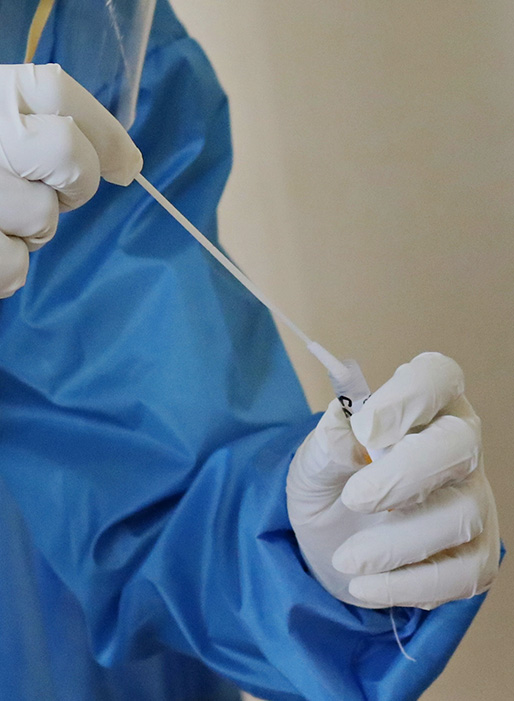
Substantial Increase in Cholera Deaths in Malawi
13 Apr 2018
Cholera cases have continued to rise in Malawi since the outbreak began in autumn 2017, with the onset of the rainy season. Lilongwe, the country’s capital, has been most notably impacted. During this period, at least 30 people have died nationwide; 18 of these cases were reported in the capital city. Malawian health authorities have recorded that 893 infections countrywide on 11 April 2018, an increase from 844 in March 2018. Of these cases, a total of 352 have occurred in the capital. The most heavily impacted districts are Karonga, Lilongwe, Salima, and Dedza, while Rumphi, Dowa, Nkhatabay, Likoma, Nsanje, and Mulanje have also been hit by the outbreak.
Key Points
- Malawi continues to record new cholera cases, with most cases reported in its capital, Lilongwe.
- At least 30 people have been killed since the outbreak began in Autumn 2017; 18 deaths have occurred in Lilongwe.
- Districts heavily hit by the disease are Karonga, Lilongwe, Salima and Dedza.
Situational Summary
Health: Cholera cases have continued to rise in Malawi since the outbreak began in autumn 2017, with the onset of the rainy season. Lilongwe, the country’s capital, has been most notably impacted. During this period, at least 30 people have died nationwide; 18 of these cases were reported in the capital city. Malawian health authorities have recorded that 893 infections countrywide on 11 April 2018, an increase from 844 in March 2018. Of these cases, a total of 352 have occurred in the capital. The most heavily impacted districts are Karonga, Lilongwe, Salima, and Dedza, while Rumphi, Dowa, Nkhatabay, Likoma, Nsanje, and Mulanje have also been hit by the outbreak.
The outbreak has been linked to contaminated drinking water from shallow, contaminated sources and to poor food hygiene. Parts of the capital city have experienced flooding and heavy rains continue nationwide; this is likely to result in further contamination of drinking water supplies.
In March 2018, Malawian officials argued that they were winning the war against the disease, claiming that no new cases had been registered. However, the figures released during April indicate that this is not the case.
What is Cholera?
Cholera is an acute diarrhoeal disease. It can kill within hours unless it is sufficiently treated. While figures are not entirely clear, it has been estimated that between 1.3 million and 4.0 million cases of cholera occur every year, with between 21,000 to 143,000 deaths attributed to the disease. Cholera occurs in Africa, Asia, Central and South America, and more recently, in parts of the Caribbean. The US Centre for Disease Control (CDC) reports that global cases of the disease have risen steadily since 2005. Most of those infected will have few or zero symptoms; these cases can generally be treated with a rehydration solution. However, in severe cases, rapid treatment with intravenous fluids and antibiotics is required. It can take between 12 hours and five days for an individual to show symptoms after ingesting contaminated food or water. Even for those with mild or no symptoms, the infectious bacteria can live in an individual’s faeces for up to ten days, posing a significant difficulty to any quarantine system.
What is Being Done?
Authorities have announced that there is a ban on the sale of cooked food in market places in an attempt to control the disease. UNICEF (United Nations International Children’s Emergency Fund) and other aid groups are working with the government to provide medical supplies and equipment to treat those infected. The government has also received a grant to implement a water and sanitation project in cholera hit areas of Karonga and Rumphi districts.
Some in Malawi have criticised the government’s response for focussing on symptoms rather than causes. In the longer term, Malawi, and other locations where cholera is present, need to ensure the provision of potable water and sufficient sanitation to prevent outbreaks occurring. Further health and hygiene education will be required for the Malawian population to ensure that this outbreak is overcome and does not return.

SECURITY ADVICE
HealthModerateWhat should you do?
These five basic steps are effective measures for cholera prevention.
Travellers to Malawi should remember to employ the above to prevent or limit the potential for infection from cholera. It should also be noted that there are vaccination options available for the disease. All travellers should seek medical advice at least six weeks before travelling to understand if any vaccinations should be taken for travel to Malawi.
The primary security threat to travellers to Malawi remains petty crime. A variety of criminal activity is evident throughout the country, from petty thievery to violent carjackings and burglaries. Travellers may wish to consider employing to pre-arranged locally-vetted driver and vehicle prior to their arrival in country, as local transport infrastructure is weak. For all travel to Malawi, Solace Global would advise that clients seek pre-travel security advice and employ travel-tracking technology with an intelligence feed in order to stay up to date on recent developments.